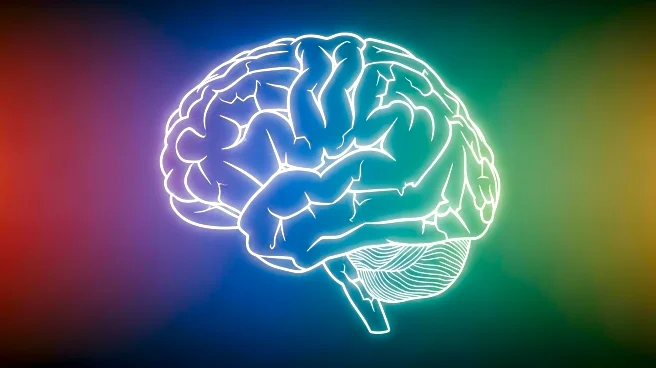What's Happening?
A study conducted by researchers from Boston University Chobanian & Avedisian School of Medicine has found that neurodegeneration in young athletes may begin before the onset of chronic traumatic encephalopathy (CTE). The research, published in Nature, examined brain tissue from young former contact sport athletes and identified repetitive head impact (RHI)-related brain injuries, including brain cell loss, inflammation, and vascular damage. The study involved 28 men aged 25 to 51, divided into groups based on their exposure to contact sports and CTE diagnosis. The findings suggest that RHI can cause significant brain damage independent of CTE, with a notable 56% loss of neurons in athletes, regardless of CTE presence.
Why It's Important?
The study's findings have significant implications for contact sports, highlighting the potential for brain damage from repetitive head impacts even before CTE develops. This research underscores the need for revised safety protocols and preventive measures in sports to protect young athletes from long-term brain injuries. The results could influence policy changes in sports organizations and lead to increased awareness and education about the risks associated with contact sports. Understanding the early onset of neurodegeneration could also pave the way for new diagnostic and treatment strategies to mitigate the impact of RHI on athletes.
What's Next?
The study calls for further research to understand the mechanisms of RHI-related brain injuries and to develop methods for early detection and prevention. Sports organizations may need to reassess their safety guidelines and implement stricter measures to reduce head impacts. Additionally, there could be increased advocacy for policy changes at youth, high school, and collegiate levels to protect athletes. The findings may also prompt discussions among medical professionals, sports authorities, and policymakers about balancing the benefits of sports participation with the risks of brain injuries.










